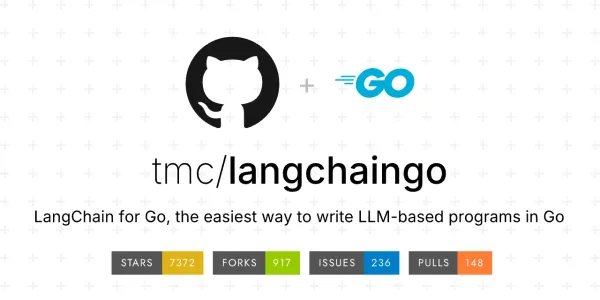Software Engineer vs Software Developer: What’s the Real Difference?

Let’s be real – if you’re not in tech, you probably think “software engineer” and “software developer” are just fancy ways of saying “computer person.” And hey, you’re not totally wrong. Both roles involve a lot of coding, debugging, and muttering at screens. But in the industry, there are some key differences between these two jobs. So let’s break it down and figure out what sets them apart.
The Basics: What They Actually Do
At their core, both software engineers and developers are in the business of making software. They’re the wizards behind the apps you use, the websites you browse, and that annoying pop-up that won’t go away no matter how many times you click the X. But here’s where things start to diverge:
Software Developers: The Code Craftsmen
Think of software developers as the artisans of the coding world. They’re focused on the nitty-gritty of writing code, usually for a specific project or application. Their day might involve:
– Writing and testing code (duh)
– Fixing bugs (double duh)
– Implementing new features (triple duh)
– Collaborating with designers to make things look pretty
– Wondering why their code worked yesterday but not today
Developers are often specialists in a particular programming language or framework. They’re the ones who can tell you why Python is superior to JavaScript (or vice versa) and will fight you about it.
Software Engineers: The Big Picture People
Software engineers, on the other hand, are like the architects of the digital world. They’re still coding, but they’re also thinking about the bigger picture. Their responsibilities might include:
– Designing entire systems and how they fit together
– Making high-level decisions about the direction of a project
– Analyzing and improving the efficiency and scalability of systems
– Managing teams of developers
– Explaining to management why the project will take longer than expected (again)
Engineers often have a broader skill set and a deeper understanding of computer science principles. They’re the ones who can explain how that app you’re using actually works under the hood, complete with fancy terms like “algorithms” and “data structures.”
Education and Background: Do Degrees Matter?
Here’s where things get a bit fuzzy. In theory, software engineers typically have more formal education – often a degree in computer science or software engineering. Developers, on the other hand, might have a more varied background. Some have CS degrees, others are self-taught coding geniuses who dropped out of high school to start the next Facebook (spoiler: it usually doesn’t work out that way).
In reality, though? The lines are blurring. These days, you’ll find plenty of self-taught engineers and developers with PhDs. What matters more is experience and skill. That said, if you’re gunning for a job with “engineer” in the title, having that degree might give you an edge.
The Salary Question: Show Me the Money!
Ah, the part you’ve all been waiting for. Generally speaking, software engineers tend to earn more than developers. According to some random statistics I found on the internet (which are always 100% accurate, right?), the average salary for a software engineer in the US is around $107,000, while developers rake in about $85,000.
But here’s the catch – these numbers can vary wildly depending on location, company, experience, and how well you negotiate. A senior developer at a tech giant in Silicon Valley might be swimming in cash, while an entry-level engineer at a startup in the midwest might be eating ramen for dinner.
Career Progression: Moving Up the Ladder
Both roles offer plenty of room for growth, but the paths might look a bit different:
Developer Career Path:
- Junior Developer (aka “I have no idea what I’m doing”)
- Developer (aka “I sometimes know what I’m doing”)
- Senior Developer (aka “I usually know what I’m doing”)
- Lead Developer (aka “I have to help others know what they’re doing”)
Engineer Career Path:
- Junior Engineer (aka “I think I know what I’m doing”)
- Software Engineer (aka “I definitely know what I’m doing”)
- Senior Software Engineer (aka “I know what everyone should be doing”)
- Principal Engineer or Architect (aka “I decide what needs to be done”)
Of course, many developers eventually move into engineering roles, and some engineers decide they prefer the hands-on coding of development. It’s not a one-way street.
The Real-World Perspective: Does It Even Matter?
Here’s the kicker – in many companies, the terms “software engineer” and “software developer” are used interchangeably. You might be hired as a developer and find yourself doing engineering work, or vice versa. It often comes down to how a particular company structures its teams and roles.
What matters more than the title is the actual work you’re doing and the skills you’re developing. Are you more interested in diving deep into code and becoming a master of your chosen language? Development might be your jam. Do you get excited about system architecture and solving large-scale problems? You might be an engineer at heart.
So, Which One Should You Be?
The million-dollar question (or $107,000 question if you’re an engineer, $85,000 if you’re a developer… I’ll stop now). Here’s a quick quiz to help you decide:
- Do you enjoy planning things out in detail before starting?
- Are you fascinated by how different systems work together?
- Do you find yourself thinking about scalability and efficiency a lot?
- Do you like managing teams and making high-level decisions?
If you answered yes to most of these, you might be more suited to engineering. If you’re more interested in the hands-on coding and immediate problem-solving, development could be your calling.
The Bottom Line
At the end of the day, both software engineers and developers are crucial to the tech world. They’re both problem solvers, creators, and the reason why you can order pizza without talking to another human being (truly the pinnacle of technological achievement).
Whether you call yourself an engineer or a developer, what matters most is your skills, your passion for technology, and your ability to turn coffee into code. And remember, no matter which path you choose, you’ll still spend a good chunk of your day Googling error messages and wondering why your code isn’t working. Welcome to the glamorous world of tech!



